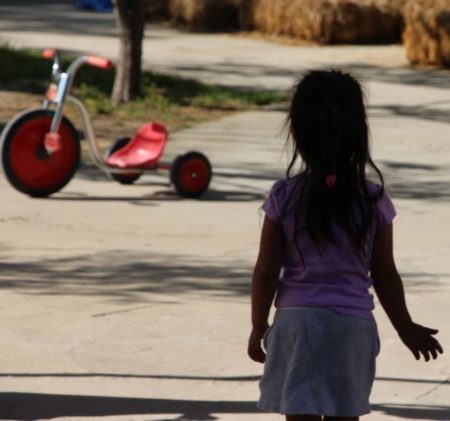With the increasing demands to meet standards of achievement, schools have been trending in their decrease of recess time since the early 2000s in order to use all school time to it’s fullest. The decline and loss of unstructured playtime is detrimentally more and more common. The long and exhausting, yet exhilarating, games of tag are long gone. Kids aren’t given adequate time to play, and many times student are prohibited from even running during recess. Recess, the only time of the day where they aren’t being told what to do, has been hijacked. Recess, a time that’s suppose to be guarded for them to exert all their excess and built up energy, is no longer valued. Recess, a break from having to sit quietly “criss-cross”, “spoons in bowls” and eyes tracking the teacher, is no longer what it used to be.
According to the Public Policy Institute of California, in 2009, two-thirds of U.S. Kindergartners attended Extended-Day Kindergarten (also known as Full-Day Kindergarten) with that number expected to rise. This data is roughly eight years old so we can only assume that this number has risen. The only difference in a Kindergartener’s day and that of a 4th grader is that he/she may be allowed to take a short nap or have a rest period during the middle of the day.
Elementary schools are more academically demanding of our little ones than when we were in school and at the cost of their free playtime. Many schools now face facility space challenges on top of having to meet minimum academic standards. Additionally, many schools are overcrowded and lack playground space. Facilities aren’t being designed with playtime in mind. Schools are now known to prohibit children from moving freely and running for justified fear of liability. Parents have less tolerance of bumps and bruises and expect to have their children return to them in the same condition in which they arrived at school. Children are confined to tight spaces and herded for their safety. With the extended days and increased academic demands, kids aren’t given the freedom after school to run and play, unwind. They get home, have to do homework, have dinner, bathe and go to sleep at a decent hour so they’re prepared to learn the next day. It’s vicious and cruel – when are kids supposed to play? Parents are just as culpable as administrators. It is our job as parents to value playtime for our small learners and see to it that they are given a safe space to run in. We also have to be okay with minor scrapes and bruises.
The goal for extending Kindergarten instruction time was to give English learners, children of color, and economically disadvantaged and low performing schools extra instruction time to help them catch up to other peers. Unfortunately, there has been little evidence reported that shows full-day Kindergarten has long-term academic benefits. What I’d hope LAUSD, California Department of Education, and legislative powers would realize is that what we’re doing isn’t working. We need to invest in play-based early education, including both preschools and elementary schools, where children are taught the power of play and have time for undirected playtime. Children need to be allowed ample time for free expression and exerting themselves physically. Playtime should not be discounted or devalued especially in our young children.

